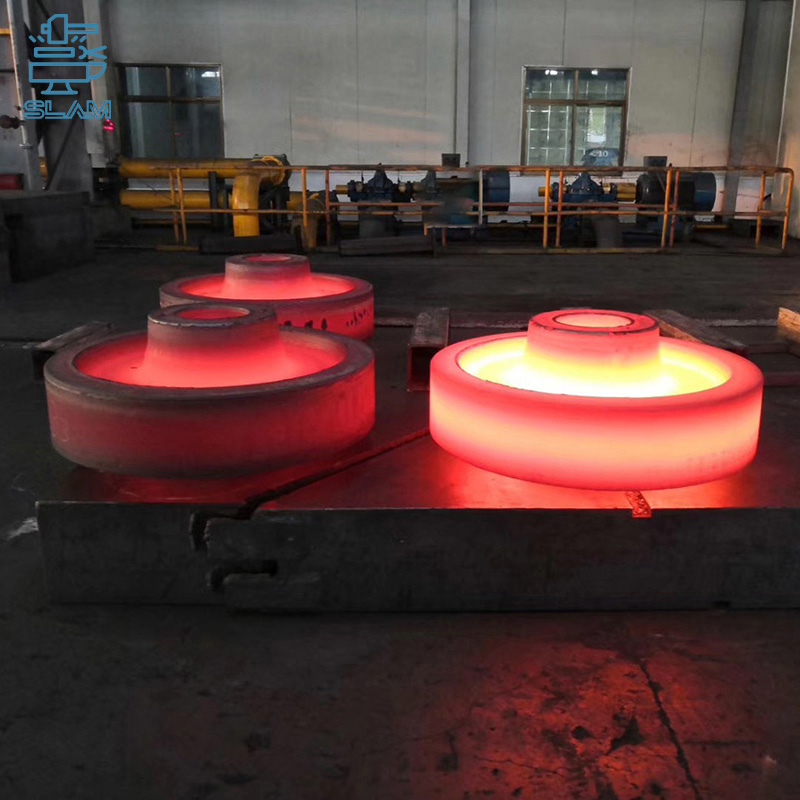- All
- Product Name
- Product Keyword
- Product Model
- Product Summary
- Product Description
- Multi Field Search
GH3030 Nickel-Based High Temperature Forgings
GH3030 is a type of nickel-based superalloy forging that has gained widespread popularity for its exceptional strength, durability, and resistance to high temperatures. This alloy is commonly used in a range of industrial applications, including aerospace, power generation, and chemical processing.
Chemical Composition

- Carbon (C): ≤0.10%
- Silicon (Si): ≤0.60%
- Manganese (Mn): ≤1.00%
- Phosphorus (P): ≤0.025%
- Sulfur (S): ≤0.015%
- Chromium (Cr): 19.0-22.0%
- Nickel (Ni): 30.0-35.0%
- Cobalt (Co): ≤2.0%
- Molybdenum (Mo): 2.0-3.0%
- Tungsten (W): ≤1.0%
- Iron (Fe): Bal.
Mechanical Properties
- Tensile strength: 760 MPa (110,000 psi) to 920 MPa (133,000 psi)
- Yield strength: 450 MPa (65,000 psi) to 690 MPa (100,000 psi)
- Elongation: 30% to 40%
- Reduction of area: ≥60%
- Hardness: ≤HB 235
Applications of GH3030 Ni-base Superalloy Forgings
GH3030 nickel-based high temperature forgings are used in many applications that require high temperature strength, corrosion resistance, and good mechanical properties. Some of the most common applications include:
- Gas turbine engine components: GH3030 forgings are used in gas turbine engine components such as combustion chambers, turbine blades, and vanes.
- Petrochemical industry: This alloy is used in petrochemical applications such as reactors, heat exchangers, and piping systems.
- Nuclear power: GH3030 is used in nuclear power applications such as reactor internals, control rod drive mechanisms, and steam generators.
- Aerospace: This alloy is used in aerospace applications such as jet engine components, exhaust systems, and hot section components.
GH3030 Nickel-Based High Temperature Forgings
GH3030 is a type of nickel-based superalloy forging that has gained widespread popularity for its exceptional strength, durability, and resistance to high temperatures. This alloy is commonly used in a range of industrial applications, including aerospace, power generation, and chemical processing.
Chemical Composition

- Carbon (C): ≤0.10%
- Silicon (Si): ≤0.60%
- Manganese (Mn): ≤1.00%
- Phosphorus (P): ≤0.025%
- Sulfur (S): ≤0.015%
- Chromium (Cr): 19.0-22.0%
- Nickel (Ni): 30.0-35.0%
- Cobalt (Co): ≤2.0%
- Molybdenum (Mo): 2.0-3.0%
- Tungsten (W): ≤1.0%
- Iron (Fe): Bal.
Mechanical Properties
- Tensile strength: 760 MPa (110,000 psi) to 920 MPa (133,000 psi)
- Yield strength: 450 MPa (65,000 psi) to 690 MPa (100,000 psi)
- Elongation: 30% to 40%
- Reduction of area: ≥60%
- Hardness: ≤HB 235
Applications of GH3030 Ni-base Superalloy Forgings
GH3030 nickel-based high temperature forgings are used in many applications that require high temperature strength, corrosion resistance, and good mechanical properties. Some of the most common applications include:
- Gas turbine engine components: GH3030 forgings are used in gas turbine engine components such as combustion chambers, turbine blades, and vanes.
- Petrochemical industry: This alloy is used in petrochemical applications such as reactors, heat exchangers, and piping systems.
- Nuclear power: GH3030 is used in nuclear power applications such as reactor internals, control rod drive mechanisms, and steam generators.
- Aerospace: This alloy is used in aerospace applications such as jet engine components, exhaust systems, and hot section components.











